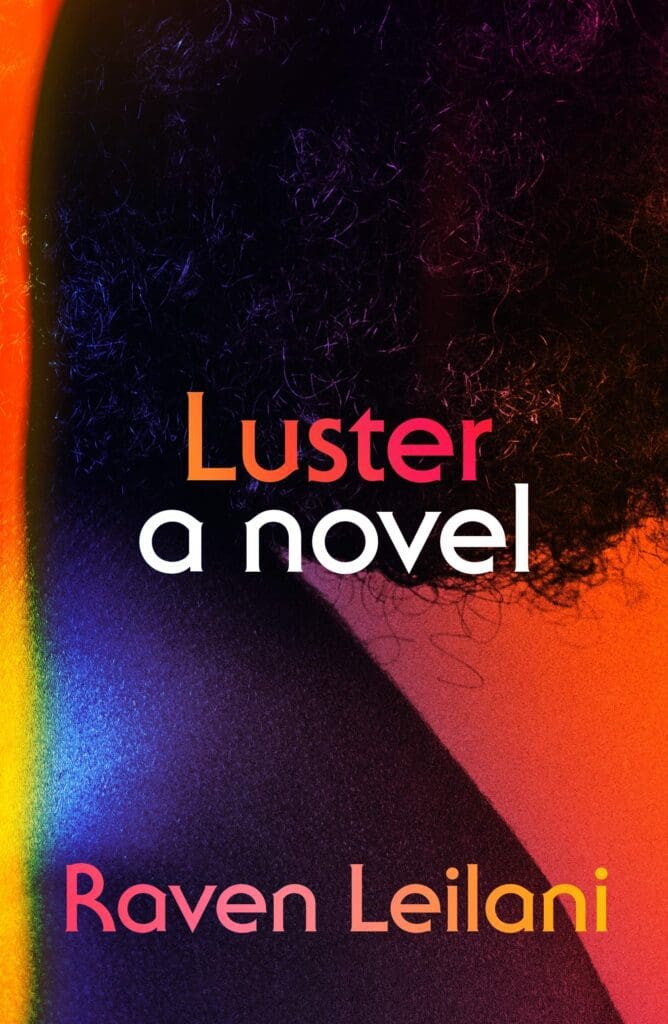As the era of Philip Roth, Norman Mailer, and John Updike—sex-norm-subverting Baby Boomer writers—passes, something about the sexual rutting of white men grows tired. New scrutiny appears for their works; Updike’s late fiction, David Foster Wallace said, exemplified “the joyless and anomic self-indulgence of the Me Generation[’s] impassioned infidelities.” In response, a new wave of American authors are emerging to re-examine the Complicated White Man’s extramarital affair. Thirty-year-old Raven Leilani’s first novel, Luster (227 Pages; Farrar, Straus and Giroux), tells the story from the other side, as a young Black woman involves herself in the open marriage of an older white man.
As Edie, the young Black woman, courts Eric, an older white man she meets online, she places herself at the mercy of one such Complicated White Man and his “intoxicating drug of power imbalance.” He is mysterious and authoritative, having lived a longer, more successful life and assumed the manifold privileges awarded by his race, gender, and wealth. With him, Edie feels Schrödinger-esque: like the cat that is both alive and dead until someone opens the box, the conflicting ideas in Edie’s internal world—her desire to hide and to be totally known, her existential indifference and manic self-consciousness, her private and public Black identities—choose one extreme in Eric’s presence. “Behind his eyes, I see myself fractured into pieces,” she says, “Suddenly it feels painful to be this ordinary, to be this open to him.” Meanwhile, Eric retains his veneer. Unlike Edie, he can remain inconsistent: he can stick his fingers in Edie’s mouth but claim to be “old-fashioned,” push her yet say he is gentle, stop responding for weeks and say he’s stil in love.
Luster is foremost a novel about upending this dynamic. Refreshingly, Luster turns the Complicated White Man’s gaze backward, shifting its scrutiny from Edie’s internal inconsistencies to the world that asks her to be something consistent. Gaining sureness in her Blackness, femininity, and selfhood, Edie removes Eric’s sheen, reducing him to a power-starved alcoholic with a penchant for emotional chicanery. When the novel bucks all the forces that obscure Edie’s individuality, it reveals itself to be about a Black woman, an artist, and “the blood women wade through to create art.” In this slogging, Edie is aided by important allies: Edie develops a relationship with Eric’s wife, Rebecca, with whom she paints cadavers of deceased veterans and flies bare-chested through a mosh pit; she also befriends Akila, Eric’s adopted Black daughter, and tutors her on “everything…African American 101.”
This latter relationship is full of heart, touching racial camaraderie, and generation-specific details. Leilani is profoundly dedicated to faithfully rendering fourteen-year-old Akila, as seen in a notable exploration of her room. After turning over objects and reading original fanfiction about Superman reclaiming his masculinity, Edie realizes “the cutesy stay out sign on the door now seems out of step if not ironic, the room less the product of petulant stoicism and more a tribute to earnest fandom.”
Readers may take issue with the novel’s sex-negative attitudes. While the text is daring with respect to bodies, sexuality, and the sometimes-ugly scenery of sexual encounters, each passage about sex ends, either immediately or upon reflection, in a place of shame, self-loathing, or terror; to Luster, sex is about “satiation and horror.”
Luster’s negativity, however, is often part of its charm. Its dark humor, for instance, is unique and relevant: jokes like “I think to myself, You are a desirable woman. You are not a dozen gerbils in a skin casing” or “‘You’re kind of aloof,’ he says, and all the kids stacked underneath my trench coat rejoice” play on body image and personal insecurity. It can also be wildly shocking, as in: “There are times I interact with kids and recall my abortion fondly.”
Luster is ambitious, relevant, and necessary. Leilani’s is a clear new voice reconciling with the mantles America builds for oppressors. Luster knows how one can adore those belittling figures, like the Complicated White Man, but reminds, “all of it, even the love, is a violence.”

